2025
Scene contributed energy modelling of a new housing co-operative at Lowfield Green, York, with phase 1 being completed in 2025. Scene contributed to the Community Energy Fund project to calculate the savings and appropriate capacity for a shared photovoltaic generation and battery energy storage system. Scene consulted with the community to assess occupancy and usage patterns before conducting detailed appliance and building thermal modelling used to evaluate different PV and BESS sizing scenarios. The modelling opened up several funding routes with the community progressing the project to the implementation stage.
Funded by the Community Energy Fund, Scene conducted a feasibility assessment investigating the viability of developing low carbon heating and electricity generation in Clanfield, West Oxfordshire. The study comprised detailed technical and financial appraisals, as well as a review of the funding options and legal structures best suited to help the community of Clanfield progress their preferred developments.
Scene undertook a Phase 1 Community Energy Fund study to establish the viability of a communal heat network across five Quaker-owned properties in Yealand Conyers, Lancashire. Due to the site's low energy demand, communal heat systems are not financially viable. A building-specific air-source heat pump alongside a ground solar array solution was recommended.
Scene investigated the options for a low carbon energy system in Crick, West Northamptonshire. This involved detailed technical and financial appraisals across technologies for heat, electricity, and efficiency. Scene recommended a community investment programme in non-domestic rooftop solar, and a supportive programme to increase domestic installation of domestic air source heat pumps, rooftop solar PV, and efficiency upgrades.
Scene led technical and financial appraisals for the development of a low carbon energy solution at Hornsey Community Centre, in North London. Building-specific solutions and local supply opportunities to a neighbouring housing trust and primary school were also considered. Following a programme of community engagement events, an investment case was provided.
Scene conducted a feasibility study on installing a low carbon solar energy system on a landfill site in Neston, in collaboration with Neston Community Energy (NCE) and Cheshire West and Chester council. The study was funded by the Community Energy Fund and sought to define the benefit of energy generation solutions for the local community as well as assessing the financial prospects of the proposed development.
Holy Island Community Energy and Energy Efficiency Feasibility Study was a low carbon project run by Holy Island 2050 (HI2050). The project is part funded by the UK Government through the UK Shared Prosperity Fund and the North East Combined Authority Investment Fund with the North East Combined Authority as the Lead Authority. The study was undertaken by Scene between October 2024 – February 2025 to understand the feasibility of community-led and owned energy systems on Holy Island and supporting energy efficiency and low carbon electricity generation measures.
Selkirk Regeneration, a Scottish Charitable Incorporated Organisation (SCIO), commissioned Scene Connect Ltd (Scene) to assess the feasibility of ground-mount solar PV development on land held in Common Good on the edge of Selkirk in the Scottish Borders.
Following a pre-feasibility assessment conducted in 2023, Scene support the Alt Housing Cooperative (AHC) to secure funding via the Community Energy Fund (Phase 2) from the UK Government. The funding supported detailed technical and financial analysis of low carbon heating, solar PV and retrofit solutions for AHC properties.
2024
Scene assessed the feasibility of integrating Battery Energy Storage Systems (BESS) at sites owned by East Riding and Yorkshire Council. This included the technical and financial viability of stand-alone BESS, co-located BESS and Solar, and an aggregated domestic virtual power plant. The commercial opportunities were assessed - including expected revenue from grid services - and recommendations made for optimised systems.
Scene delivered four online workshops on behalf of the North East and Yorkshire Net Zero Hub. Each workshop covered a key community energy theme and aimed to upskill participants and provide expert guidance on attendee project-specific queries. Attendees included members of community organisations, NEYNZH representatives and local authority representatives.
In 2023/24, Scene supported ONECarluke Area Network (ONECAN) COP 26 Response Group to conduct a baseline assessment of the Carluke area’s carbon footprint. The report is a comprehensive assessment of the carbon emissions associated with all of the area’s activities, across both the domestic and non-domestic arenas, and breaks down the emissions associated with all electricity, natural gas, heating sources, transportation, land use, and waste activities. The report directly informed a ONECAN Net Zero Strategy, which identifies feasible activities that can provide the greatest positive impact to Carluke’s overall carbon footprint, and on the most cost-effective basis.
Scene was the technical lead for a Community Energy Fund (Stage 1) study exploring the feasibility and benefits of using solar canopies in car parks across the Three Rivers district to generate local, renewable electricity.
The Primrose Hill Heat Demonstrator feasibility study was funded by the UK Government Community Energy Fund and was delivered in partnership with Possible and Camden Council. The study sought to define a low carbon solutions for private and social housing properties in Primrose Hill, London, including low carbon heat network, solar generation and energy efficiency retrofit strategies.
From Autumn 2023, Scene has been an energy audit framework provider for Sheffield City Council, delivered as part of the UK Shared Prosperity Fund (UKSPF). As of Summer 2024, Scene has identified 1,223 MWh of potential energy savings. This represents an energy bill saving of over £200,000.
Scene is produced a Net Zero Action Plan for the Beech Hill Decarbonisation Committee. This project focused on the decarbonisation of heat and improving the energy efficiency of properties in the area.
In 2024, Scene developed a best practice guide to inform the newly established Lanarkshire Climate Action Hub on how it can take actions to help improve the energy efficiency of homes in the area. Scene's reporting provided a strategic route map for the Hub, designed for the specific needs of communities across Lanarkshire and drawing together the experience and skills of local organisations.
Scene has been a framework provider since 2023 for Tees Valley Combined Authority and the North East Net Zero Hub, providing expert support to community and public sector energy projects. With the framework running until 2025, Scene will continue to offer support to organisations in the North East of England to address the climate emergency and to deliver economically and socially transformative energy projects.
2023
CivTech has provided a springboard for Scene to develop its building energy modelling capability and combine this with Novoville's fully supported customer journey to develop a unique digital platform to increase the pace and scale we decarbonise our homes, which operates for individuals, communities and social landlords.
Hundreds of thousands of floor plans already exist for homes across Scotland, but these are typically only used for selling homes, and having served this purpose are of no more use. This project investigated the feasibility of repurposing these existing floor plans to support green heat plans. It explored and developed the most efficient way of sourcing and extracting 2 dimensional data and converting it into a 3D model of a building, and making this information accessible for those planning, detailing and costing green heat options for buildings.
In 2022/23, Scene conducted a comprehensive feasibility and design study focusing on consumer energy demand modelling on the Knoydart Peninsula, Scotland. This study aimed to gain insights into the current and future energy demands of consumers connected to the Knoydart Renewables electricity grid, as well as those residing beyond the existing network coverage.
In Summer 2023 Scene conducted a carbon audit, and options appraisal for Garvald Home Farm, in the Scottish Borders. Current site energy demand was studied. Building energy efficiency improvements, and energy generation opportunities (utilising the natural resources and topography of the locality) were also modelled. Feasible energy efficiency improvements to farm dwellings, and a ground-mounted solar PV array in a land parcel were recommended. Recommendations were made to closely align to the farm's sustainable ethos, and future development aims.
In 2023, Scene conducted a feasibility study focused on the development of community renewable energy hubs and an EV vehicle and charging network on the island of Mull. Building on the Clean Energy Transition Agenda (CETA) developed in 2023, the purpose of the study was to provide viable community-led solutions for climate action and decarbonisation on the Mull Archipelago.
In 2023, Scene produced a Clean Energy Transition Agenda (CETA) on behalf of the Mull Archipelago community. The CETA provided a decarbonisation roadmap by assessing current emissions, appraising decarbonisation opportunities, and establishing the community's vision for net zero islands.
In 2023, Scene conducted a pre-feasibility study in partnership with climate charity, Possible, and Camden Council to explore the potential of establishing a low carbon district heat network in Primrose HIll, London. This study focused on assessing the feasibility of upgrading an existing gas heat network that serves approximately 50 properties owned by Camden Council.
In 2022/23 Scene built a whole-town carbon emissions model covering all emissions sectors in Carluke, which allowed the community to understand their local energy system. This provided a baseline for the community's Net Zero Strategy. Scene co-developed this Net Zero Strategy by identifying the town's decarbonisation pathways and engaging with the community via workshops: finally producing an action plan owned by the community.
In 2022 / 23, Scene undertook a feasibility study for a low carbon district heat network in the town of Watlington, Oxfordshire. Through a detailed techno-economic design process, Scene defined how a low carbon heating system could benefit Watlington residents and businesses through lower energy bills and reduced carbon emissions.
GRIPS is an Innovation project led by Swanbarton in partnership with Gham Power, Practical Action Consulting, HiT Power Limited and Scene Connect to improve access to clean, reliable energy in Nepal. Within this project, Scene Connect developed and provided an advanced distribution network monitoring system to identify periods of network stress that might result in an outage.
In 2022/23, Scene project managed the detailed feasibility and development of a heat network proposal in the village of Upper Heyford, Oxfordshire funded by the Rural Community Energy Fund (RCEF) Phase 2.
Galleries to Calories (G2C), comprising industry, academic and national research partners from Scotland, USA and Ireland, demonstrates for the first time the use of legacy mine workings as recycled heat storage and transport networks to provide managed sustainable regional recharge of low enthalpy geothermal heat. Scene is providing environmental and social impact assessment expertise to the G2C project.
In a 2023 survey of the Biggar area conducted by Scene in conjunction with the Biggar Area Climate Care (BACC) group, roughly one third of respondents stated that they think about climate change and act upon it every single day. Scene was engaged as consultants to undertake a feasibility study on decarbonising the area by focusing on sustainable transportation, recycling and reducing waste, and reducing domestic energy use in Biggar by BACC.
Much like the rest of Scotland, the island of Canna is balancing its need for future development with the goal to decarbonise its energy. Canna currently has Solar PV, wind turbines generating energy on the island, with back-up diesel and a storage battery. However, a lot of this renewable energy is wasted when excess energy is produced, meaning the island is still heavily dependent on oil as a fuel source. In 2021 - 2023, Scene worked with the island of Canna to better understand their energy flows and to optimise energy use on island.
Cranleigh Parish Council (CPC) secured funding through the UK Government Rural Community Energy Fund (RCEF) to undertake a feasibility study into the viability of developing low carbon heat supply options and low carbon electricity supply within Cranleigh. The study was undertaken between May 2022 – December 2022 to understand the feasibility of Low Carbon heat supply options and solar photovoltaics (PV).
CESET explores the potential of community energy to accelerate inclusive and clean energy transitions in Ethiopia, Malawi and Mozambique. The project is an attempt to create new trans sectoral capacity to deliver community-led energy solutions in the Southern and East African regions. As part of this effort, Scene is providing off-grid energy expertise to the CESET project, including research, design and implementation of a solar PV microgrid in Mozambique.
Photo Credit: Eco Life - Solar Power Systems
Scene provided project development consultancy services to the Dundee Renewable Energy Society (DRES), supporting the construction of a solar array at the site of the James Hutton Institute research centre. Scene led the programming, budgeting and risk management activities, and represented DRES at several consultations with third parties. Scene oversaw the ground-mounted solar array and planning approval process. Following this, Scene led the procurement process to employ a reliable partner to construct the system.
2022
In 2021-22 conducted a pilot feasibility study into establishing a community energy club for Carluke residents. Scene conducted detailed energy and financial modelling of energy club scenarios and proposed governance structures for optimal operation. The results were promising - the community energy club is capable of delivering equitable community energy with substantial reductions in baseline electricity costs and can provide network flexibility.
A baseline heat demand study of the Stowmarket Health, Education and Leisure Facility (SHELF) was conduted by Scene in 2022 to accompnay an application to the Heat Networks Delivery Unit (HNDU) for support in the development of a heat network to meet the heating requirements for the area. The Energy Demand Assessment provides an annual and peak heat load for each building owned by SHELF, as well as for the proposed buildings which will form part of the planned heat network.
A feasibility study carried out by Scene in 2022 into several renewable energy clusters based in Berkhamsted, Hertfordshire. This project looked into the viability of a number of different renewable energy solutions across the area considering the unique opportunities and constraints of each cluster. This work was conducted with the support of the Rural Community Energy Fund (RCEF).
In 2022, Scene conducted 10 detailed assessments of community halls throughout the Scottish Borders on behalf of The Bridge, a charity organisation seeking to support community-led decarbonisation and enable the continued existence of community halls, as an important space for local identity and social cohension.
In 2020 - 2022, Scene conducted a feasibility assessment for solar PV, battery storage, and EV charging at the Galaxy Sports facility in Grangemouth, Scotland. The study developed into a viable project which was implemented during 2022 and continues to operate, providing clean energy to the site, powering LEDs for the site's sports fields, and charging visitors electric vehicles.
The William Scott Abbott Trust (WSAT) secured funding through the UK Government Rural Community Energy Fund (RCEF) to undertake a feasibility study to explore low carbon energy generation, demand reduction, and mobility options at its Sacrewell Heritage Farm and Country Centre near Peterborough. The study was undertaken between April 2022 – August 2022, comprising a baseline spatial and energy assessment; technical, financial, and commercial modelling to assess primary opportunities; and a project roadmap for onwards development of shortlisted options.
Scene Connect Ltd. (Scene) was appointed to conduct a low carbon options and business appraisal for the Alt Housing Co-operative (AHC) in Liverpool, in partnership with North West Housing Services (NWHS), and Zero Carbon Liverpool City Region Ltd. (ZCL-CR).
In 2022, a feasibility study was conducted by Grantchester Parish Council with technical support from Scene and Townrock Energy, and funding form the Rural Community Energy Fund (RCEF). The project sought to define how a low carbon heating system could benefit Bildeston residents and businesses through reduced energy bills and carbon emissions.
A low carbon heat network feasibility study was undertaken by Scene during 2022 in the village of Bildeston, Suffolk. The project sought to define how a low carbon heating system could benefit Bildeston residents and businesses through reduced energy bills and carbon emissions. The feasibility study was conducted with the support of the Rural Community Energy Fund (RCEF) by Heating Bildeston, a not-for-profit group of Bildeston residents seeking to secure a low carbon future for Bildeston.
Scene is suspporting the Derbyshire, Derby City, and Peak District National Park local authorities with a spatial renewable energy assessment. This research will contribute to these Councils' local development plans and supplementary climate change regulatory guidance, by highlighting, modelling, and appraising key regions in the locality best suited for particular renewable energy generation and low carbon technology development.
On behalf of the Airlie Street Hall Development Trust, Scene is developing a Community Investment Plan for local development within Alyth, Scotland. By gathering local input through a series of community workshops, discussions, and online events, Scene will produce an actionable plan for use of the community's revenue derived from the nearby community-owned wind turbine at the Welton of Creuchies.
Building on the Isle of Ulva's Redevelopment Masterplan, Scene is supporting the island to develop a plan for the sustaianble redevelopment and repopulation, after many decades of population decline and emigration.
2021
Scene was appointed to conduct a low carbon options appraisal for the Iqra Learning Centre (ILC), a religious community centre based at West Hurlet House in the South of Glasgow. Scene conducted energy, technical, financial, and environmental modelling work, providing practical next steps and recommendations for the ILC to reduce its carbon footprint and energy bills through the conversion of the existing off-grid gas systems to low carbon heating systems, alongside supporting low carbon technologies including additional Solar PV, battery storage, and roof insulation.
Scene Connect Ltd. ("Scene") was appointed by the Othona community ("Othona"), to prepare and submit a planning application for a proposed wind turbine at its site near Bradwell-on-Sea, Essex. The work was organised into four broad work stages, to take place between January and July 2022.
Scene supported the ONE Carluke Community Energy Club (OCCEC) to appraise, design and install a community-owned renewable energy system to supply electricity to local consumers. The project investigated the potential for locally owned energy generation and distribution, including both physical and virtual local supply options.
Scene is working with Rhondda Cynon Taf County Borough in Wales to support the council's commitment to achieving net-zero greenhouse gas by 2030. As part of the ZUoS platform development, Scene is taking a systems based approach, to develop a net zero multi-vector heat, storage and electricity micro-grid solution.
The Arisaig Community Trust (ACT) is a charity established for the development of the community of Arisaig, a village on the West Coast of Scotland. ACT sought to explore low-carbon options to reduce their carbon footprint and generate additional income for community benefit.
Scene supported Energise Moray - a community partnership in Moray, Scotland - to investigate an emerging opportunity for the shared ownership of wind turbines at the nearby Clash Gour Wind Farm. Scene advised on the set up of a community investment body; evaluated the Clash Gour shared ownership opportunity; and developed a long-term roadmap for a Moray-wide renewable energy hub to support their net zero transition.
During the first quarter of 2021, Scene conducted its first ever carbon emissions audit.The assessment integrated data from the company's office energy use, emissions associated with project travel and staff commuting, equipment purchases, and working-from-home during the COVID-19 pandemic. The results of the audit informed the creation of Scene's Net-Zero emissions ambitions, and lead to development of a new Carbon Consultancy workstream.
In partnership with Heriot-Watt University, Findhorn Innovation Research & Education, Environmental Design Solutions and Auroville Consulting, Scene is developing a novel control system capable of accessing flexibility from existing residential air conditioning (AC) systems in India.
The Perth Smart Energy Network (Perth SEN) will extend Scene's existing ZUoS energy services platfom and implment it across two buildings in the local area. The platform will allow the Council to monitor and trade energy between unconnected buildings, assets, and energy technologies, incoprorating asset control and demand-side response in order to improve renewable energy uptake, reduce energy costs and generate additional revenue.
Building on the results of the EMBLEM energy trading trials on the Isle of Iona, EMBLEM 2 will now test the feasibility of a local peer-to-peer energy trading market to tackle the energy trilema in Rwanda and Nepal.
Scene in collaboration with Locogen, Enbala and Mentone Energy are developing Cloud ZUoS - a market coupled virtual power plant that facilitates local energy trading alongside IoT appliance and DER asset control services for consumers, generators, storage providers and network operators.
2020
Powering Parks is a project by Possible, Hackney council and Scene. We have been investigating the potential for installing heat pumps in Hackney’s parks to provide heat to nearby buildings. If successful, it has the potential to tackle climate change, improve air quality and generate income for councils and park authorities to re-invest locally.
The 'Saline Aquaculture Network in Ghana' project will establish a network of regenerative saltmarsh and aquaculture sites along the coast of Ghana, exploring the growth of high-value halophytic crops for local farmers as well as providing a host of ecological benefits such as coastal flood-mitigation, carbon capture, and ecosytem restoration.
Alongside Takazuri, Scene will be exploring a circular economy model that deploys disruptive manufacturing technology and converts waste into innovative long- life products with huge commercial potential for domestic and international markets in Kisii, Kenya. The project will support the existing informal workforce while also creating formal employment opportunities, and promoting product innovation while taking care of the environmental impact.
Scene provided consultancy services for a solar PV generation and battery storage development at The Gallops farmland in Sussex. The project involved end-to-end development services including: an initial feasibility, energy and modelling assessment, in-depth financial assessment, detailed Solar PV system design, planning and construction management.
The 4th annual Community Energy - State of the Sector 2020 research project was launched in January 2020. The 2020 report comes at a time of change in the UK low carbon sector, with the closure of the Feed-in and Export Tariff schemes altering the landscape for small to medium scale energy generation. These changes come alongside a wider sectoral shift towards a more decentralised and digitised approach to low carbon development across the UK.
In partnership with Farm-Hand, Futurepump and the Gulu Agricultural Development Company, Scene is trialling a smart irrigation tool in northern Uganda - REFRUIT (Resource Efficient Farming by Renewable Uganda Technology). Informed by participatory workshops with regional smallholder farmers, REFRUIT will use hyper local day-ahead weather forecasting to deliver the right amount of water at the right time, through a solar-powered water pump.
HEED (Humanitarian Engineering and Energy for Displacement) is a joint project between Coventry University, Practical Action and Scene. Its aims are to increase the access of affordable and sustainable energy for forcibly displaced people in Rwanda and Nepal and to introduce new principles for the design, procurement and provision of energy for forcibly displaced communities worldwide.
Scene has been working with the New Cumnock Community Council (NCCC), over the last three years to identify, understand and negotiate potential wind generation projects in the New Cumnock region. Supported by CARES and with an initial aim to understand shared ownerships opportunities in the nearby Ashmark Hill Wind Farm, Scene is now providing a strategic supporting role to NCCC in relation to a number of local shared ownership and community ownership opportunities.
The island of Iona has an ambitious aim of becoming entirely energy self-sufficient through use of renewable energies and storage. We have worked with Iona Renewables, a representative local group, in developing a roadmap that would allow their aims to be achieved. The roadmap includes various technologies and project types covering local generation, storage, supply and use of electricity and heat.
2019
Scene will deliver a feasibility study to assess the potential to install a community-owned district heating scheme on the site of the former Brymbo Steelworks. This system could supply renewable heat to a new housing scheme, a number of public properties (school, community centre, medical centre) and commercial units adjacent to the site in addition to restored heritage buildings. Dialogue with the Brymbo Heritage Trust and other stakeholders will ensure that the study outcomes are aligned with local priorities.
On behalf of the South Seeds community-led sustainability charity, Scene is undertaking the necessary feasibility assessments, graphical noise and visual impact modelling, and turbine designs for up to 3 community wind turbines in East Renfrewshire, just south of Glasgow.
For the third year running, Scene have been working in partnership Community Energy England to deliver the Community Energy State of the Sector Report 2019. This research provides an overview of the community energy sector in England, Wales and Northern Ireland. It is the most comprehensive evaluation of the community energy sector and provides a quantitative basis for the ongoing support of, and advocacy for, community energy in the UK.
Building on the State of the Sector 2018, Scene partnered with Community Energy England and UK Power Networks to investigate community energy at a greater resolution. The research focuses on the regional electricity grid managed by UK Power Networks, including the South East and East of England and London.
The Nano Membrane Toilet (NMT) currently being developed by Cranfield University has the potential to revolutionise the current system of sewage and treatment - it does not use energy or water. Scene and Practical Action Consulting (PAC) have teamed up to 1st stage route-to-market strategies to Cranfield University in deploying NMT in urban areas in Nairobi, Kenya.
2018
The ENBIO project, funded by Zero Waste Scotland, investigates the use of renewable energy for algal bio-production to enable new industry in rural areas and increase the strength of the rural circular economy. Scene Connect has been commissioned by ENBIO lead ALienergy to build an economic assessment tool that looks at powering Xanthella’s algae production system with community renewable energy in the Scottish highlands.
On behalf of Coigach Community Development Company (CCDC), Scene are undertaking an options appraisal and feasibility study for the local supply of locally generated energy. CCDC are stakeholders in both a local hydro scheme and wind turbine.
Scene have been working in partnership with Community Energy England to deliver the second edition of the Community Energy State of the Sector Report 2018.
This research provides an overview of the community energy sector in England, Wales and Northern Ireland. It is the most comprehensive evaluation of the community energy sector and provides a quantitative basis for the ongoing support of, and advocacy for, community energy in the UK.
Most of renewable energy growth has occurred among variable technologies (wind power and solar PV), raising concerns about integrating large shares of variable generation into power systems. Establishing Mutually Beneficial Local Energy Markets (EMBLEM) will test the feasibility of a pioneering energy trading system for local energy economies, that aims to be a cost-effective demand-response solution to securing efficient energy supply.
Indian agriculture is currently responsible for 22% and 85% of India’s total electricity and water consumption respectively. A main objective of SCORRES is the development of financially viable, robust, location specific irrigation systems for the Indian agricultural sector, based on clean energy and storage.
Smart Biogas Networks aims to create a system, built on digestor integrated sensors, that allows better fault prevention and detection in the biogas market - leading to more efficiencent operation and happier customers. This pilot project is taking place in Tanzania alongside leading UK and international partners.
The Poor People's Energy Outlook series (PPEO) was launched in 2010 to shine a light on energy access from the perspectives of the poor. By drawing on the realities of energy-poor people, the PPEO series has been hugely influential in re-framing the energy access narrative.
2017
This project involved a fourth shared turbine to add to the three that were completed in the first Stewart Energy project in 2014/15. The arrangement was exactly the same, with the Stewart family offering 25% ownership to Lesmahagow Developmentt Trust (LDT) in exchange for part-funding.
In 2017, Scene conducted a full land options feasibility study for a UK-based academic institute. The study focused on offsetting university carbon emissions through investing in, and developing, land in Scotland. The university's emissions in 2017 totalled 200,000tCO2e/annum.
Towards Resilience was funded by the Scottish Government International Development Small Grants Programme and focussed on identifying and overcoming end–of-life problems related to renewable energy technology deployed in the state of Odisha, North East India through the development of an information gateway.
2016
This report focused on three key activities which reflect the varied opportunities that exist for an Orkney ESCo:
1. The potential for a private wire network connecting Council-owned properties to new wind generation;
2. The potential for an energy supply company (focused on electricity supply but also considering the potential for supply of heat); and
3. The potential to develop scale wind (~20MW) projects.
As part of the Scottish Government's Geothermal Challenge Fund , the project won funding to undertake a feasibility assessment on mine water geothermal potential in the area around Hartwood Farm. The project team comprised Scene, Townrock Energy, Ramboll, Holymoor Consulting and British Geological Survey.
2015
As part of the CARES Local Energy Challenge Fund, Blackwood won funding to explore the feasibility of a local energy system at their care home properties. Scene were brought into the project in Autumn 2015 and helped Blackwood to assess the options and design local energy systems at two properties.
Developer Muirhall Energy has made 10% stakes in two of their wind farms available to nearby communities. Commissioned by Upper Eskdale Development Group in 2015, Scene have been working with several local groups - looking to ready them to be in a position to take up the shared ownership offer if the projects receive planning permission
In 2015, Scene conducted a detailed feasibility study for a local community group, providing options for a small scale hydropower project near Kyle of Sutherland, in the Scottish Highlands. Several designs were created, ranging from 95kW to 450kW.
Aiding a Perthshire-based community organisation to plan and negotiate the aquisition of a large scale wind farm - with the potential to be the largest community owned wind farm in the UK.
Scene are currently working in partnership with the James Hutton Institute to develop a demonstrator project at a North Lanarkshire farm, involving multiple renewable electric and heat technologies.
2014
Scene engaged and involved local communities in an ongoing wind turbine project near to Dingwall in the Scottish Highlands.
Scene helped a community organisation assess the potential for construction of a 2MW wind turbine within a large scale wind farm in County Antrim, Ireland.






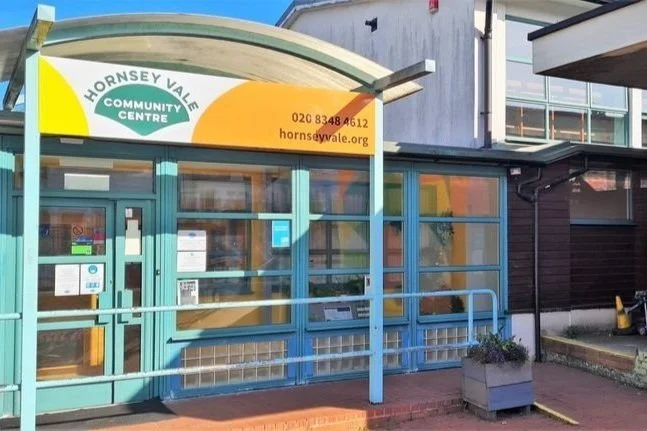











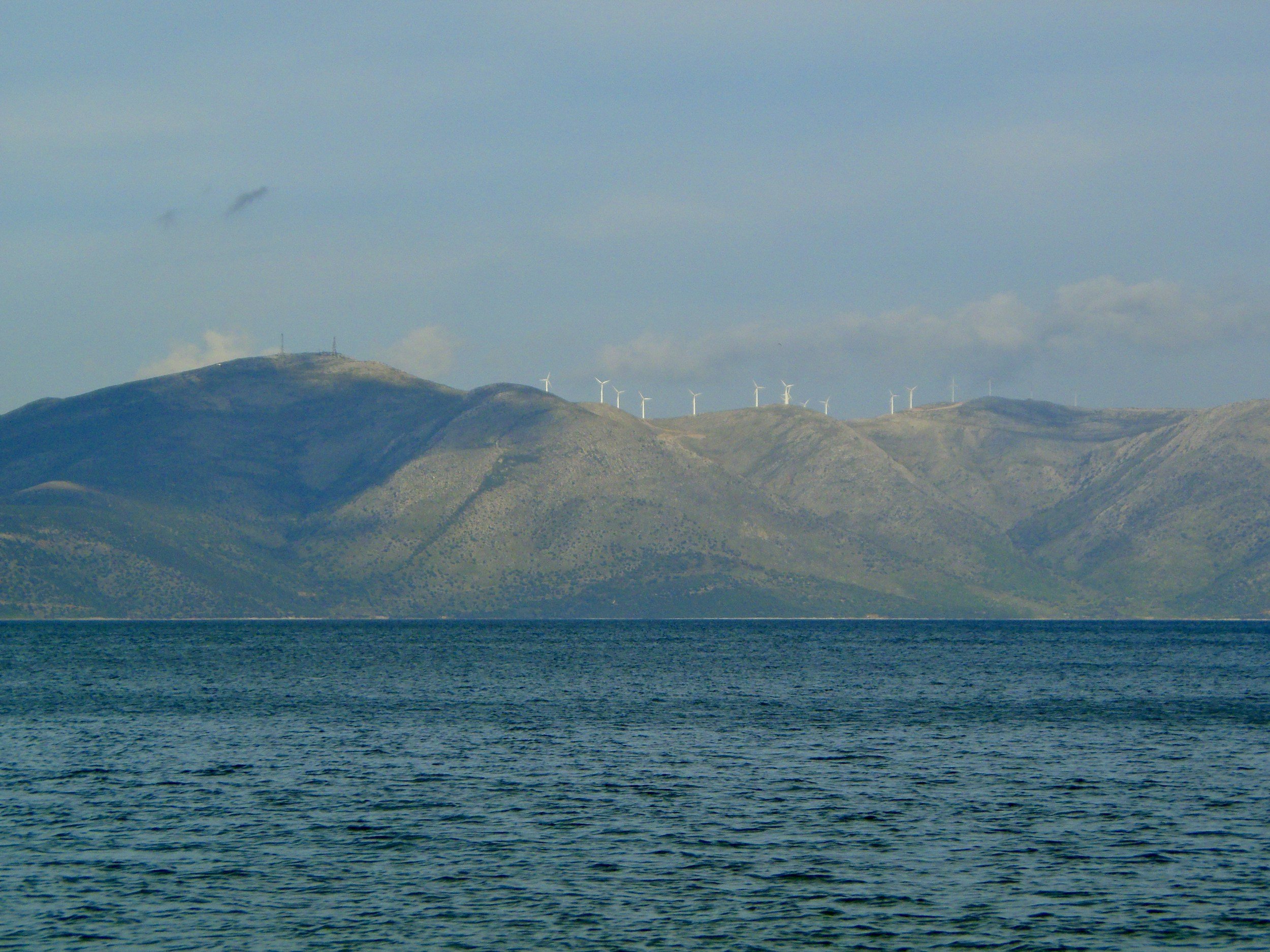







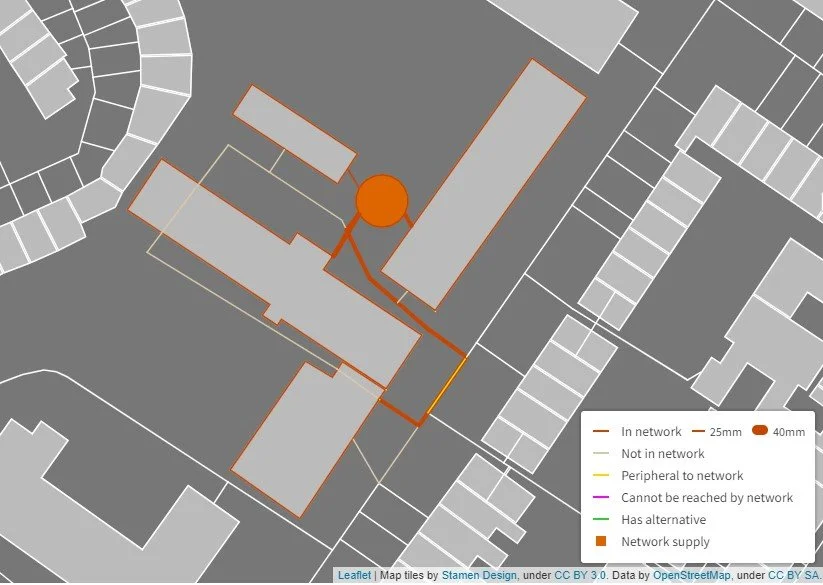








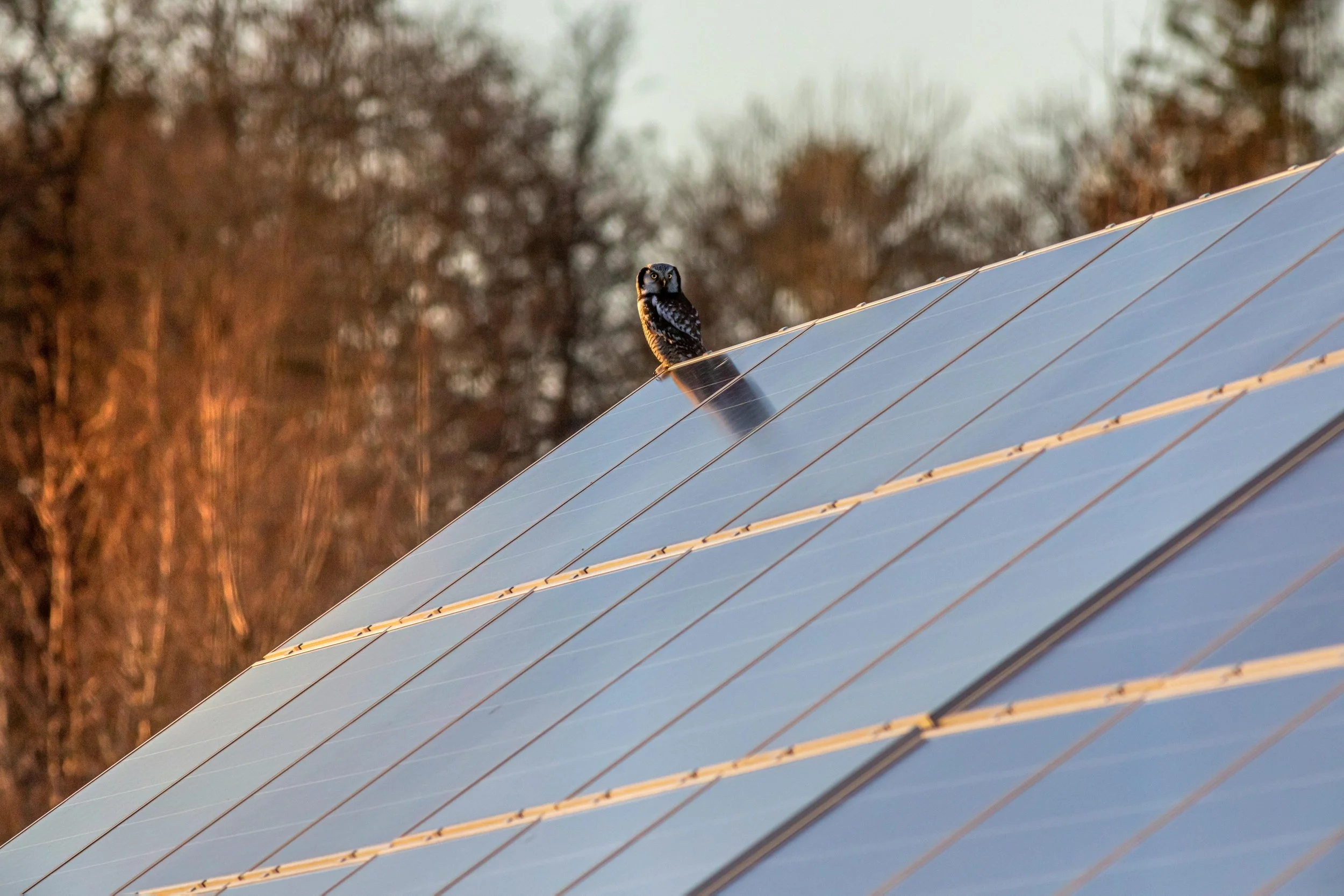










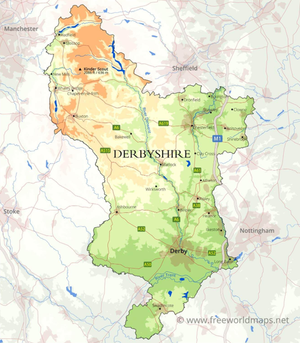
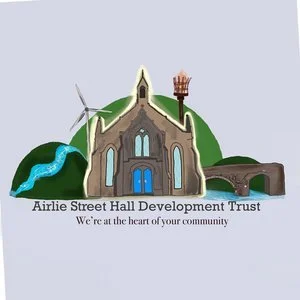




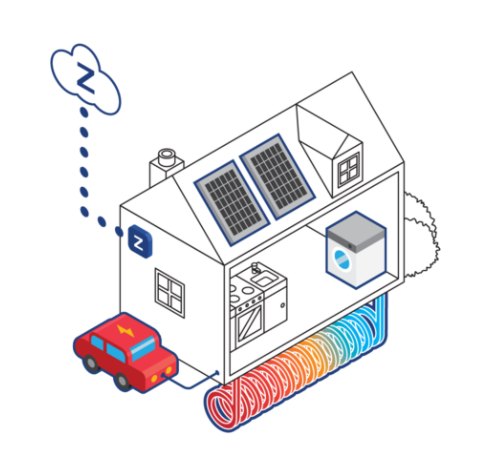



















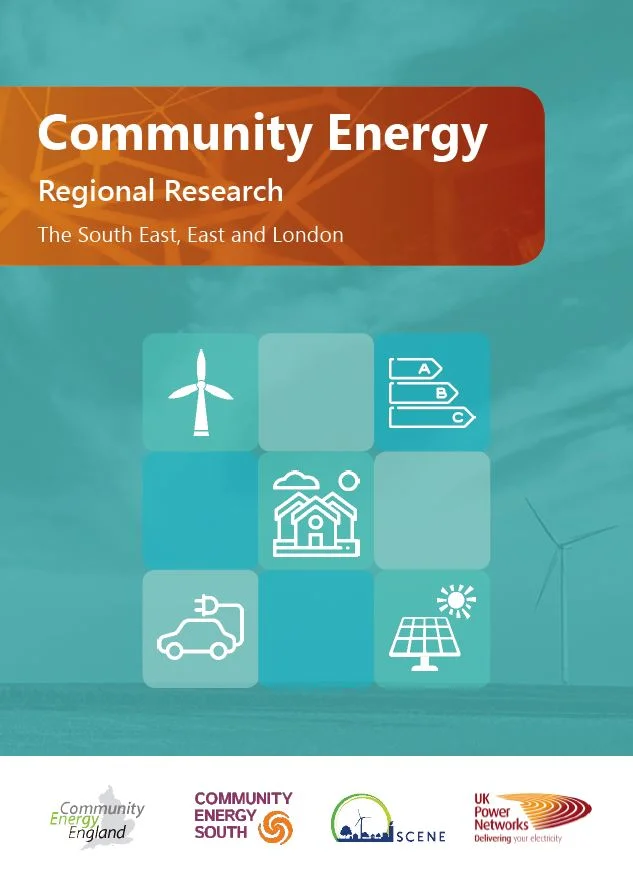





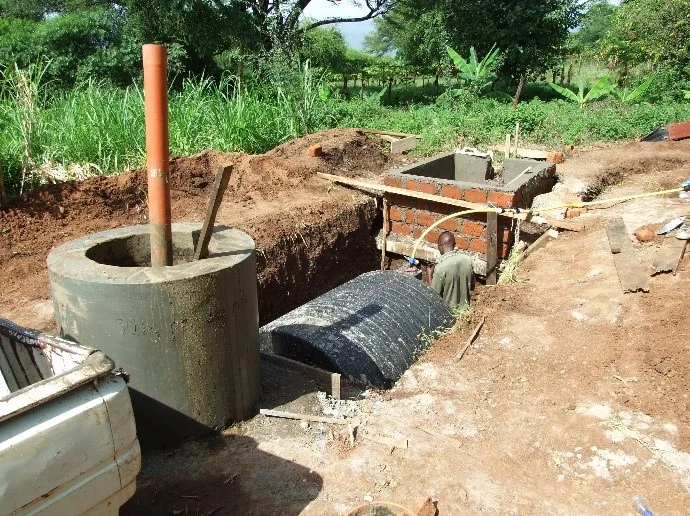
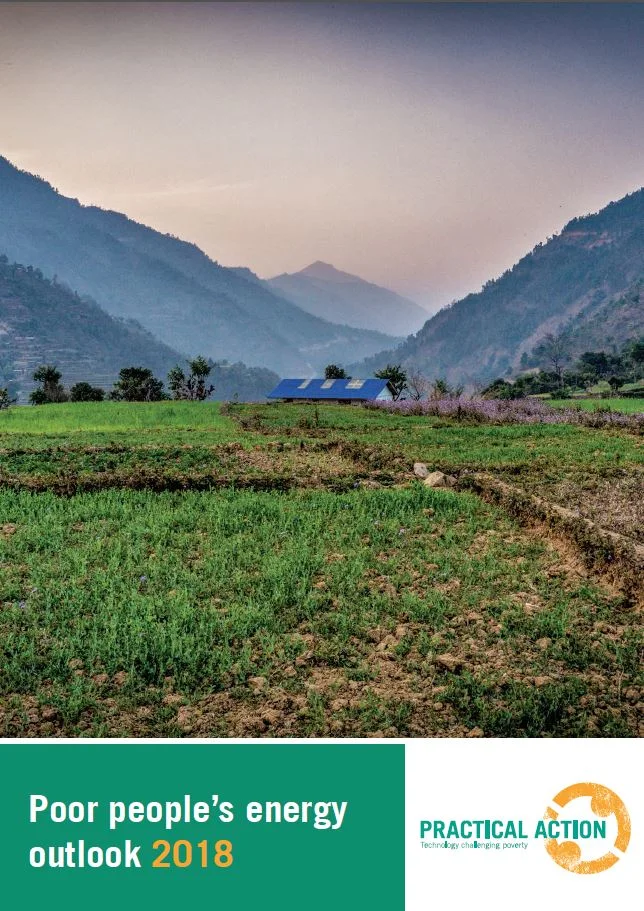












Scene conducted technical and financial appraisals for low carbon heating and generation opportunities at Hardwick Estate, South Oxfordshire. The estate is currently transitioning from private ownership to charitable status, representing a unique opportunity to enact community-led energy development. An energy club concept is preferred - combining energy generation and heat solutions to supply estate electrical and heat demand.